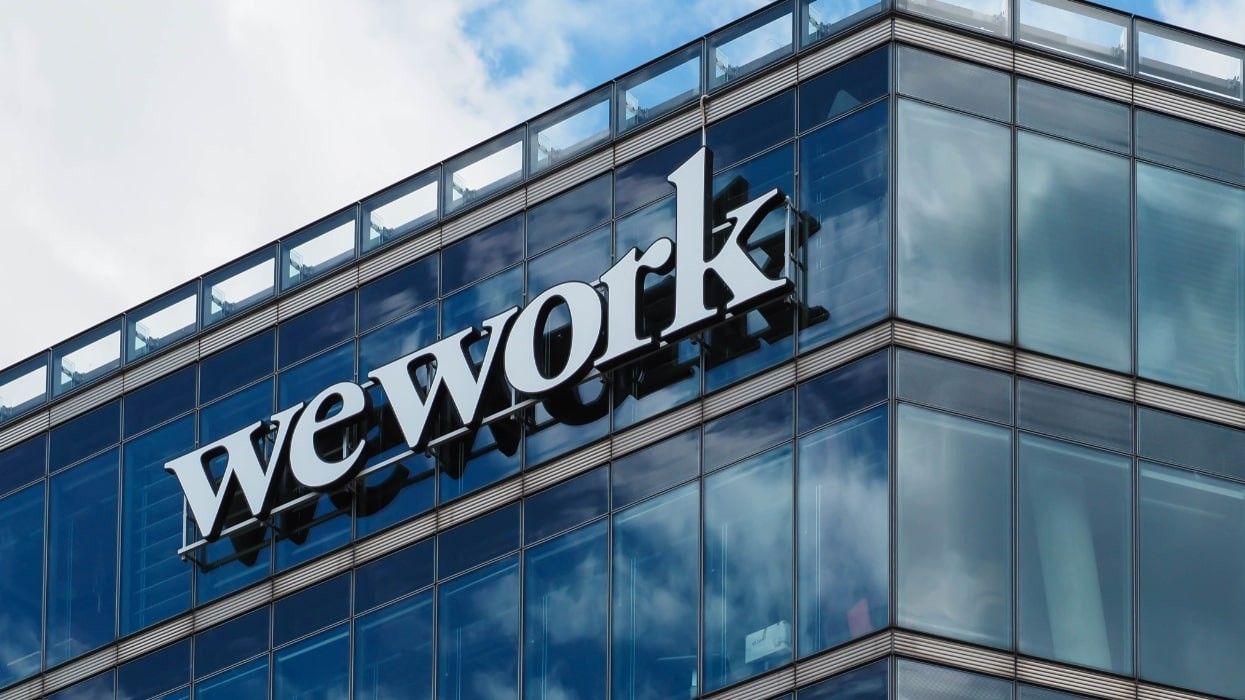A shadow of uncertainty was cast over the co-working industry this week when news broke that WeWork had filed for bankruptcy protection in Canada and the United States.
Once valued at $47 billion, the co-working giant reported nearly $19 billion in debts and just over $15 billion in assets in initial court filings. As of April 2023, WeWork's market cap was $360.9 million.
Part of the company’s restructuring process includes "streamlining" its real estate footprint by terminating the leases of "non-performing" locations — to date, they’ve exited nearly 70 offices across North America, including two in Toronto, two in Vancouver, and one in Burnaby.
But, while the story of WeWork’s demise is no doubt significant, it doesn’t foreshadow disaster for the co-working industry. In fact, the company’s competitors are flourishing.
"This is strictly a WeWork problem. They adopted the rapid scaling mindset of a tech company. As a brick-and-mortar business, you can’t financially do that. Now we’re seeing the ramifications of that," Ryan Speers, Partner and Chief Operating Officer at Workhaus, told STOREYS.
"The co-working and flexible office industry in Toronto, and moreover in Canada, is extremely strong. Workhaus, and many of our competitors, we’re seeing demand that is on-par or exceeding what we saw pre-pandemic. It will look different for every company going forward, but hybrid work is here to stay. And that’s a contributing factor to the success of co-working spaces."
Founded in 2015, Workhaus opened its twelfth location in September – its tenth in Toronto – and the space at 181 University Avenue is already nearly fully.
International Workplace Group (IWG), which owns a number of co-working companies, including Regus, Spaces, and HQ, plans to open 13 new locations across Canada by next summer, as demand for flexible space, and office vacancy rates, rise.
Liz Simon, Chief Operating Officer at Industrious, told STOREYS the co-working company has had one of its most successful years to date since it launched in 2012, and is on track for 40% growth.
Industrious opened its first Canadian location in the summer of 2022, in a former WeWork office at 33 Bloor Street East. The company currently operates over 160 co-working spaces in 10 countries.
"The flex sector has never been stronger. Demand has never been greater, especially for high quality workplaces," Simon said. "There’s a bit of irony [in WeWork’s bankruptcy], and it’s not reflective of the broader trends in the market. They’re the outlier. Flex space is really taking off."
The takeoff has been seen across the board — from freelancers taking up residence in hot desks, to startups setting up in private offices, to large corporations sourcing suites for satellite teams.
As Speers noted, the demand is being driven by the endurance of hybrid work alongside a growing appreciation for the value of collaboration and socialization. As companies re-evaluate their real estate portfolios, they’re increasingly turning to co-working spaces to fill the gap.
The sector’s growth was corroborated by Adam Jacobs, Senior National Director of Research at Colliers Canada, who told STOREYS that, like Industrious and Workhaus, most co-working companies are not only doing well, but are expanding.
"Co-working offers more flexibility to a company than a landlord would. It’s very appealing to tenants, especially with uncertainty in the office market and the economy," Jacobs said. "WeWork’s bankruptcy is very high profile, but it’s not representative of the industry."
In fact, high-profile bankruptcy may prove to be a further boost for competitors — several WeWork tenants have expressed concerns with the stability of the company to Workhaus and are shopping around for new space.
Competitors may also move in to the physical spaces left behind by WeWork, as Industrious did last year. Overall, the company's portfolio includes more than a dozen former WeWork offices, Simon noted.
Whether or not it’s in the shell of a WeWork, both Industrious and Workhaus have their sights set on a Toronto expansion — but both are taking a more prudent approach to their growth.
“We’re seeing such strong demand in Toronto. Vancouver is on our radar, and there’s definitely a need for space in Montreal,” Workhaus' Speers said. "We could expand much faster, but it's important to us that we do so in a financially responsible way."
“The Canadian market as a whole for flex office space is extremely strong right now. We’re not only unbelievably confident in what the future holds, but extremely excited as well. It’s unfortunate the position that WeWork is in.”





















